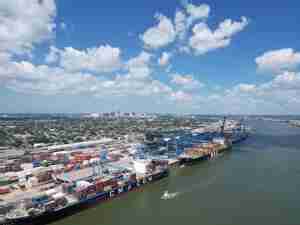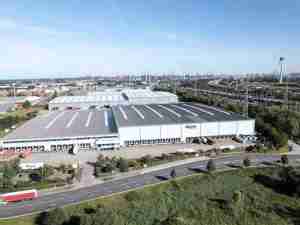Earlier sources close to the deal said SUEK had taken a minority stake of 24.9 percent, contradicting Russian press reports on Tuesday that the coal firm had bought either the whole port or a smaller shareholding.
SUEK's minority stake will enable it to remain competitive against rival exporters developing a similar sized cape port on the other side of the bay from Murmansk at Lavna, industry sources said.
SUEK has not revealed what it paid for the Murmansk stake but the Russian press on Tuesday reported a price tag of $260 million.
SUEK is not the only Russian coal exporter looking at investment in Russian ports, to move away from more expensive terminals in Latvia and Estonia which are still being used, although as little as possible.
The port was not immediately available for comment.
There is enough port space in the St Petersburg area but larger-scale ports would be a cheaper, more efficient option and the government wants investment and job creation in regions like Murmansk, the industry sources said.
"If you buy into a port and can get lower port charges you could recoup what you paid over several years. With cash costs of $90 a tonne, every dollar counts," one senior industry source said.
"I don't think they've (SUEK) bought all of Murmansk port -they should, it makes sense but there are other companies also looking, involved," another said.
Prompt thermal coal into Europe is currently trading at around $96.00 a ton delivered, leaving Russian exporters an extremely slim margin, thanks to the plunge in freight rates..
The 12 million tonnes a year Murmansk Commercial Sea Port (MCSP), on the Barents Sea in the Arctic Circle is an ice-free, key export point for coal to Europe and may have potential in the longer-term for shipments to China.
It is controlled by a group of private investors while the Russian government retains a 25.5 percent stake.
However, MCSP is on the government's 2012 privatisation programme. The state's shareholding will be auctioned but the timing has not been announced.
Rival coal exporters Kuzbassrazrezugol and the diverse SDS Group owned by Mikhail Fedyaev and Vladimir Gridin who are involved in the development of Lavna port, are expected to shift all or most of their coal from Latvian and Estonian ports to Lavna and other Russian terminals.
Lavna exporters will be able to set their own port charges low because they own the port, industry sources said.
Rail tariffs have been set lower on routes to Russian than Baltic ports for several years and this trend is likely to continue although tariffs have crept steadily higher on average, they said. (Reuters)









